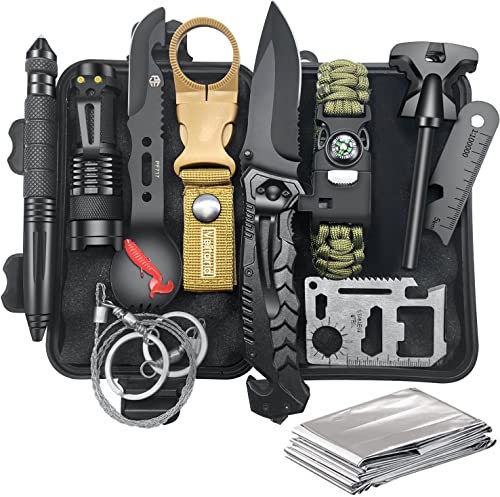The National Rifle Association has called the concealed carry bill, which would make it easier for gun owners to keep their firearms hidden when crossing state lines, its “highest legislative priority in Congress.” Despite concerns raised by Democrats about states’ rights and domestic violence, the Republican-controlled Congress has pushed the proposal one step closer to becoming law.
The House Judiciary Committee late Wednesday voted 19-11 for the Concealed Carry Reciprocity Act of 2017, which would amend the federal criminal code to allow the concealed transport of handguns across state lines, so long as both states allow it. States will not be able to impose their individual requirements for a concealed carry license on armed travelers from other states.
Republicans rejected Democratic amendments that would ban violent offenders from qualifying under the law, as well as a change that would have prevented forum shopping, which means a New York resident barred from obtaining a concealed carry permit could instead send away for one from Texas. The bill, which has more than 200 co-sponsors, almost all Republicans, now heads for the floor of the 435-member House. A similar bill, with 38 Republican co-sponsors, is pending before the Senate Judiciary Committee.
“This would end abuses in anti-gun states like New York and New Jersey and allow law-abiding concealed carriers to exercise their rights nationwide with peace of mind,” the NRA website states. “[The bill] would not, as some critics claim, affect how states issue their own concealed carry permits.”
U.S. Representative Richard Hudson, the North Carolina Republican who introduced the legislation, called the bill “welcome progress” in efforts to expand and protect access to firearms.
The legislation has reignited one of the more divisive issues in American politics. Calls for heightened regulation and background checks followed mass shootings at a country music concert in Las Vegas on Oct. 1 and a Texas church on Nov. 5, which together killed more than 80 people and wounded hundreds. The NRA, which spends millions of dollars helping elect pro-gun candidates, has urged its members to bombard Congress with calls and messages in support of the concealed carry bill.
The bill “would effectively turn the weakest state’s laws into nationwide laws”
The legislation allows firearm owners with a concealed carry permit issued by their home state to carry the firearm into any other state (all allow some form of concealed carry, although many are highly restrictive).
The gun owners wouldn’t have to reveal they are carrying a weapon, though the bill does require they be eligible to possess a firearm under federal law (which requires a background check), carry a valid photo identification and a concealed carry permit. Gun owners from states that don’t require a concealed carry permit will need to obtain some credential from their home state to take advantage of the new law’s provisions. What form that would take isn’t specified in the House bill.
Hudson criticized existing state laws governing the right to carry a weapon secretly as “confusing” and “difficult to navigate.” A summary of the bill posted on his website said that under current law, “a North Carolina resident cannot travel to Delaware without having to reroute their trip to avoid driving through Maryland” if they want to keep their weapon concealed.
The NRA, which didn’t respond to a request for comment, currently offers a map for its members to determine which states honor their concealed carry permits. It also sells a variety of “Carry Guard” insurance products, which “provide payment for the lawful replacement of your seized firearm, property restoration for your primary residence, loss of earning while in court and psychological support.”
The lobbying group’s official store also sells a variety of accessories for carrying concealed weapons, including leather purses and denim jackets.
“We don’t need any more guns in this city”
The bill has found its fair share of detractors as well, including New York Police Department Commissioner James O’Neill. “I don't think there is any reason for anybody to bring a gun into New York City,” O’Neill said in an
interview earlier this year. “We don’t need any more guns.” Historically, many firearms used in killings in more highly regulated northeastern states originate in
southern and western states with fewer or no gun restrictions.
Moms Demand Action, a gun control group that attended Wednesday’s hearing, has also attacked the bill, arguing it “is a chaotic and dangerous policy that would gut every state’s gun laws and make our communities less safe.”
The group argues that the bill “would effectively turn the weakest state’s laws into nationwide laws” because conceal carry laws vary state by state. For example, convicted stalkers are banned from concealed carry in some states, but not all, and the age for concealed carry also varies. In the event the bill passes, a Georgia permit, a state that allows abusive partners to carry hidden firearms, would become effective in New York, a state that currently doesn’t recognize any other state’s conceal carry permits.
Responding to Republicans during the hearing, Representative Jerrold Nadler, a Democrat from New York, said he “strongly opposed” the bill and argued it would override state’s rights, a traditional policy priority for Republicans. “Public safety would suffer if we were to unwisely adopt this legislation,” he added.
A slew of amendments brought by Democrats were shot down, including a proposal by Nadler to ban violent offenders from possessing a concealed handgun and another from Sheila Jackson Lee of Texas to exclude those convicted of domestic violence and stalking. A residency amendment, brought by Democrat Zoe Lofgren of California, was also rejected. The amendment sought to prevent “permit shopping” by prohibiting those living in states with stringent conceal carry permit regulations from applying for permits in more lax states.
Both Republicans and Democrats at the hearing claimed the National Fraternal Order of Police sided with them on the bill, however the law enforcement organization told Bloomberg that it has “taken no position on the overall bill.”


















































